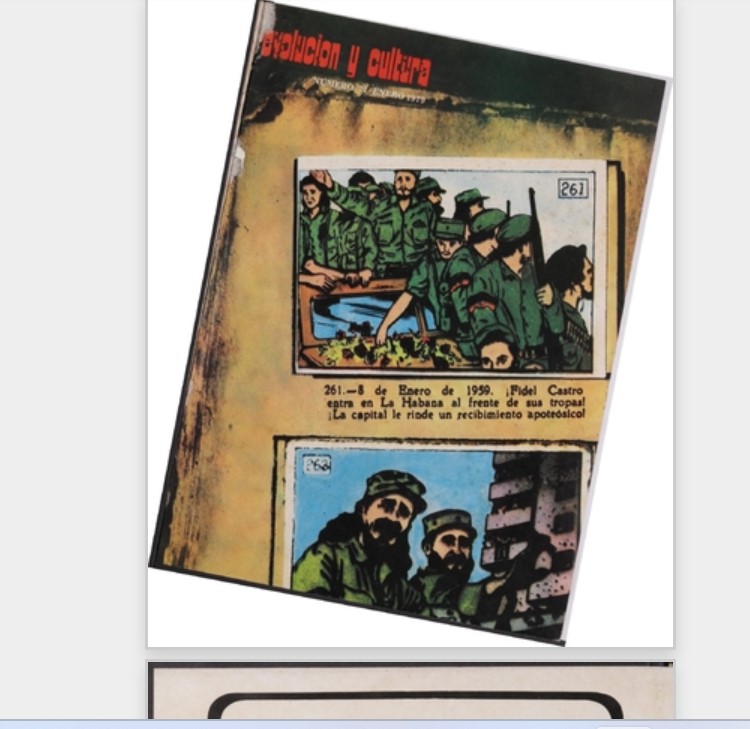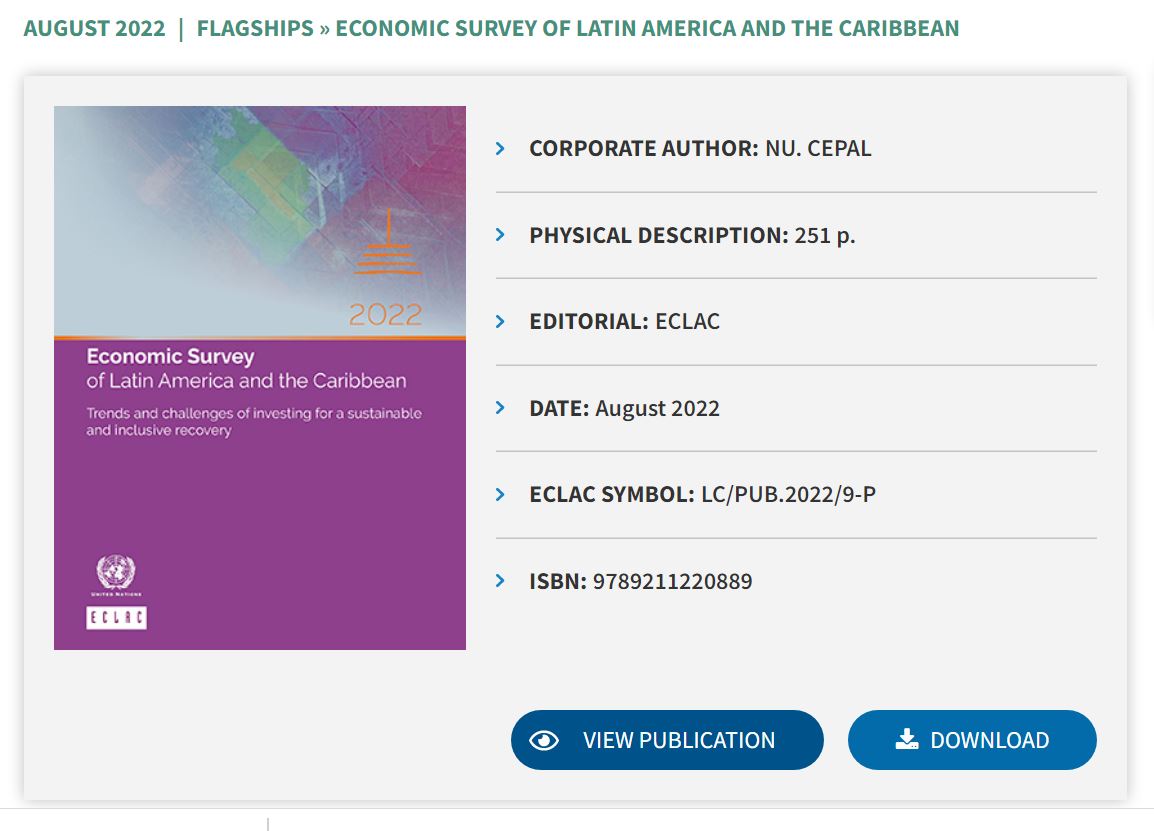Latin American Studies Collections
SIGLA: States and Institutions of Governance in Latin America Database
SIGLA (States and Institutions of Governance in Latin America, www.sigladata.org) is a multilingual digital database that freely provides information on legal and political institutions in Latin America. The beta version of SIGLA offers data on national-level institutions in Brazil, Colombia, and Mexico, as well as on international institutions. Ultimately, SIGLA will provide cross-nationally comparable, current and historical, qualitative and quantitative data on over 50 legal and political institutions in 20 Latin American countries in English, Spanish, and Portuguese.
Webinar on February 15: Ukraine Fights On: One Year Later! Episode no. 1
Note: Given the ever-changing situation in Ukraine, this event may be canceled or postponed on short notice.
At this webinar, held nearly one year after the full-scale Russian invasion of Ukraine began, women social activists and a lawyer from the SICH Human Rights Protection Group in Ukraine will provide updates on the current human rights situation and their documentation of the deliberate destruction of the civilian infrastructure in their country. The event includes a screening of the short documentary “Unbroken Women.” This event is the first in a three-part series about the Russia-Ukraine war and its impacts.
The event will be recorded for archival purposes.
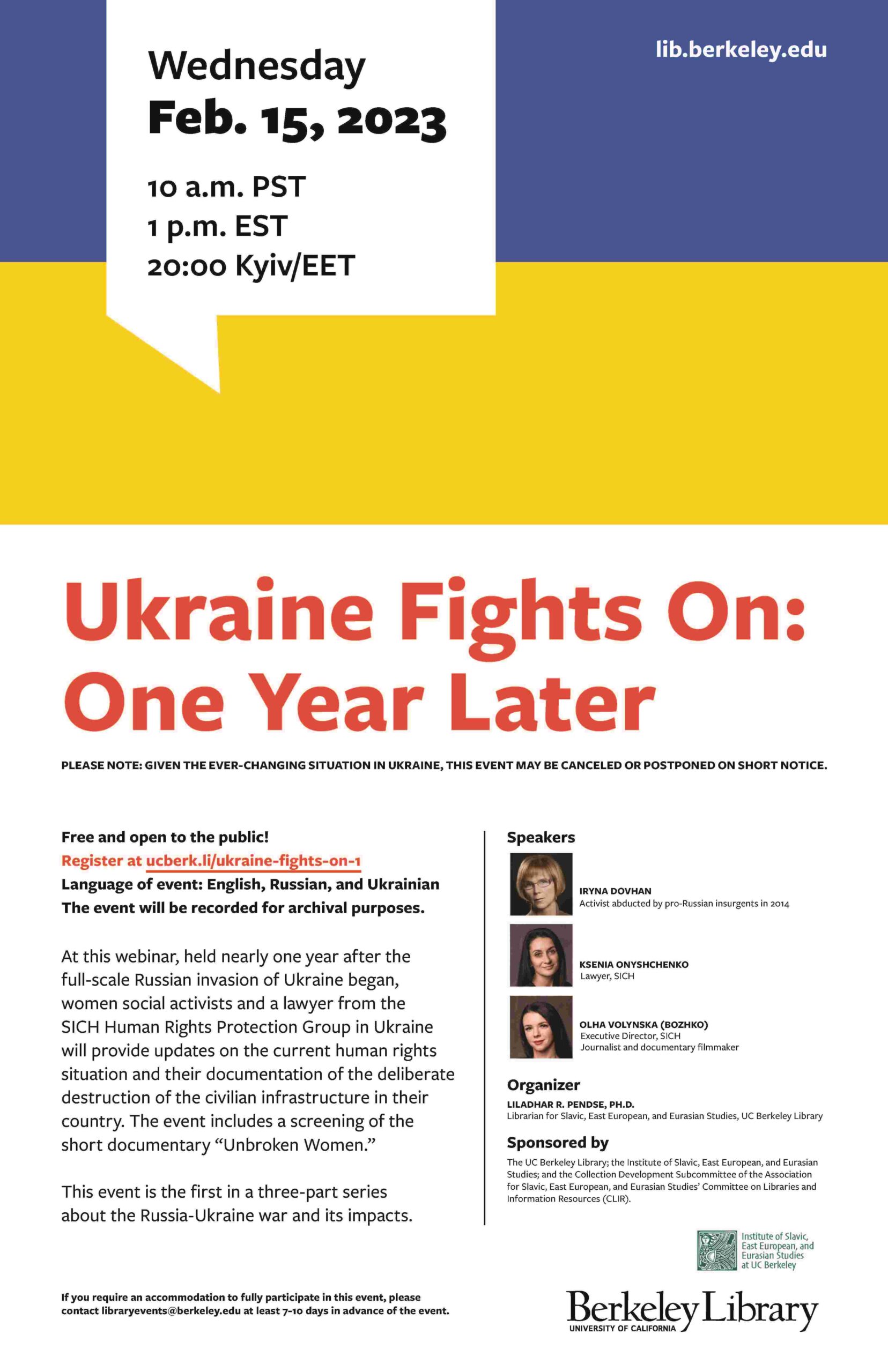
Post-Perestroika Newspapers accessible for the CRL Members
The Post-Perestroika Newspapers collection traces the evolution of post-Soviet Russia, with coverage from 1990 to 2016. Established soon before or soon after the collapse of the Soviet Union, the newspapers in this collection document the changes taking place in Russia, some with breathtaking speed, all the while embracing innovative journalistic methods and standards that were a far cry from the journalism of the Soviet period. These newspapers, some of which had a relatively short lifespan, nevertheless provide essential and critical insight into the events and personalities that defined post-Soviet Russian politics and history (Source:https://gpa.eastview.com/crl/ppn/).
To access these newspapers, please authenticate using the VPN or proxy from an off-campus location.
New Book by Darcy Grimaldo Grigsby
This book addresses the unique and profound indeterminacy of “Creole,” a label applied to white, black, and mixed-race persons born in French colonies during the nineteenth century.
“Creole” implies that the geography of one’s birth determines identity in ways that supersede race, language, nation, and social status. Paradoxically, the very capaciousness of the term engendered a perpetual search for visual signs of racial difference as well as a pretense to blindness about the intermingling of races in Creole society. Darcy Grimaldo Grigsby reconstructs the search for visual signs of racial difference among people whose genealogies were often repressed. She explores French representations of Creole subjects and representations by Creole artists in France, the Caribbean, and the Americas. To do justice to the complexity of Creole identity, Grigsby interrogates the myriad ways in which people defined themselves in relation to others. With close attention to the differences between Afro-Creole and Euro-Creole cultures and persons, Grigsby examines figures such as Théodore Chassériau, Guillaume Guillon-Lethière, Alexandre Dumas père, Édouard Manet, Edgar Degas, the models Joseph and Laure, Josephine Bonaparte, Jeanne Duval, and Adah Isaacs Menken.
Based on extensive archival research, Creole is an original and important examination of colonial identity. This essential study will be welcomed by specialists in nineteenth-century art history, French cultural history, the history of race, and transatlantic history more generally.
[from publisher’s site]
Darcy Grimaldo Grigsby is Richard and Rhoda Goldman Distinguished Professor in the Arts and Humanities at the University of California, Berkeley. She is the author of Enduring Truths: Sojourner’s Shadows and Substance; Colossal: Engineering the Suez Canal, Statue of Liberty, Eiffel Tower, and Panama Canal; and Extremities: Painting Empire in Post-Revolutionary France.
Creole : Portraits of France’s Foreign Relations During the Long Nineteenth Century.
University Park, Pennsylvania: The Pennsylvania State University Press, 2022.
Trial of Brill’s Revolución y Cultura, 1961–2003 (ending February 21, 2023)
Revolución y Cultura, 1961–2003(Cuba)
Please access the trial through February 21, 2023, here
At UC Berkeley Library, we have several individual issues of Revolución y Cultura, however, Brill has produced a complete digitized archive of it that is searchable. We have set up a trial of this resource through February 21, 2023. We look forward to hearing your comments regarding the utility of this resource in your teaching and research. Please feel free to contact your librarian for the Caribbean and Latin American Studies here.
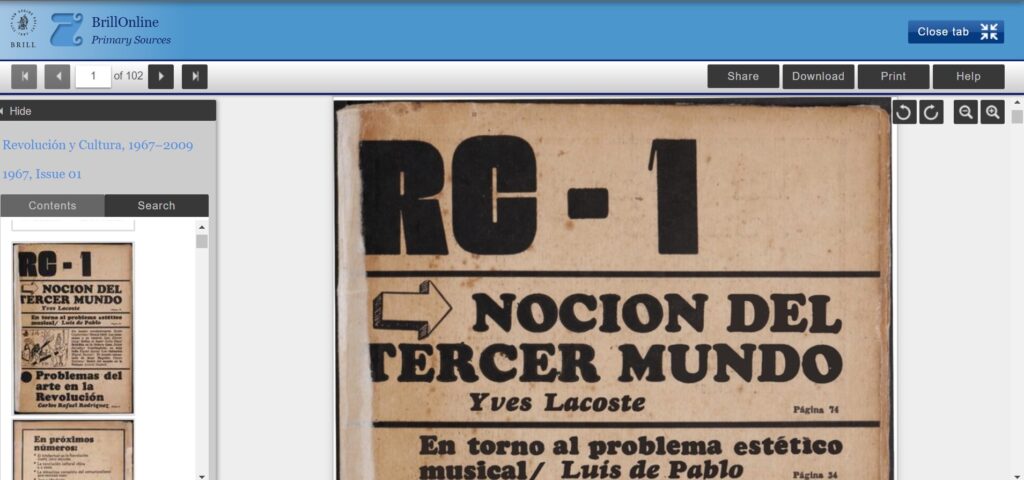
About:
Revolución y Cultura is a fundamental and often unique resource for the study of more than half a century of Cuban culture. Founded as a biweekly in 1961 under the title Pueblo y Cultura and continued in 1965 as the bilingual magazine Revolution et/and Culture and as RC in 1967, Revolución y Cultura has published uninterruptedly since March 1972. From its foundation until 1977, when the Cuban Ministry of Culture was created, it appeared as the official organ of Cuba’s National Council of Culture.
From 2004 to 2019 it was published both in print and electronically. Since mid-2019, Revolución y Cultura is published online only. Revolución y Cultura is listed in the UNESCO Portal of Culture of Latin America and the Caribbean (Source: Brill)
Cuba: Grito de Yara (10 October 1868)
Each year, on 10th October, the Cubans all over the world commemorate the call for national independence. The “Grito de Yara,” is one of many important events in the complex historical trajectory of Cuba that unleashed the potential of the national consciousness through rebellions against the Spanish imperial authorities. The full text of the “Manifiesto de la Junta Revolucionaria de la Isla de Cuba” can be read by clicking on the link here.
At UC Berkeley Library, despite our West Coast location and our Pacific Rim orientation, we have a large collection of books that will enlighten our readers about what does “Grito de Yara” means. The other essential Open Access source is dLOC (Digital Library of the Caribbean) where one can browse documents related to the “Grito de Yara.“
Below are some titles that might of interest to the readers of this blog. Since we believe in the equitable access, I am providing some links to the full-text of these items.
Below is a clip from a film,
Professor Rebecca Herman’s New Book Published: Cooperating with the Colossus A Social and Political History of US Military Bases in World War II Latin America Cooperating with the Colossus A Social and Political History of US Military Bases in World War II Latin America

Author:Rebecca Herman, the image is being used for academic, educational, noncommercial purposes only.
UC Berkeley’s Professor Rebecca Herman‘s (History) new book –Cooperating with the Colossus A Social and Political History of US Military Bases in World War II Latin America on our entanglement in Latin America since the World War II is one book that I feel honored to post about in this blog.
According to the Oxford University Press, the book has several interesting facets that are quoted from its website as follows,
- Offers a new perspective on the period of World War II and its importance in the longer history of US-Latin American relations
- Brings together the local, national, and international arenas in which the history of wartime basing unfolded
- Integrates the international history of US-Latin American relations together with local histories of labor, race, gender, and law
- Moves between the realm of high politics and the ground-level social and cultural histories of the communities surrounding US bases.
I am also pleased to post a video of her presentation at the CLAS-Berkeley.
We have access to its electronic avatar through our catalog. Thank you, Professor Rebecca Herman, for always motivating me to do my best to collect difficult to find materials from Latin America!
September 22: National Hispanic Heritage Month Celebration at UC Berkeley Library
Celebrate National Hispanic Heritage Month at the University of California-Berkeley’s Library!
The event will take place on Thursday, September 22 from 12 noon to 1:15 PDT/ 3 pm to 4:14 pm EDT.
The event is open and free to all with prior registration. Please first sign into your personal or institutional zoom accounts and then register.
http://ucberk.li/3sb
Speakers (in alphabetical order)
José Adrián Barragán-Álvarez
Curator, Latin Americana
The Bancroft Library, UC Berkeley
Lillian Castillo-Speed
Head Librarian at Ethnic Studies Library, UC Berkeley
José Montelongo
Maury A. Bromsen Curator of Latin American Books
John Carter Brown Library, Rhode Island
Moderator: Liladhar R. Pendse, Librarian for the Caribbean and Latin American Studies
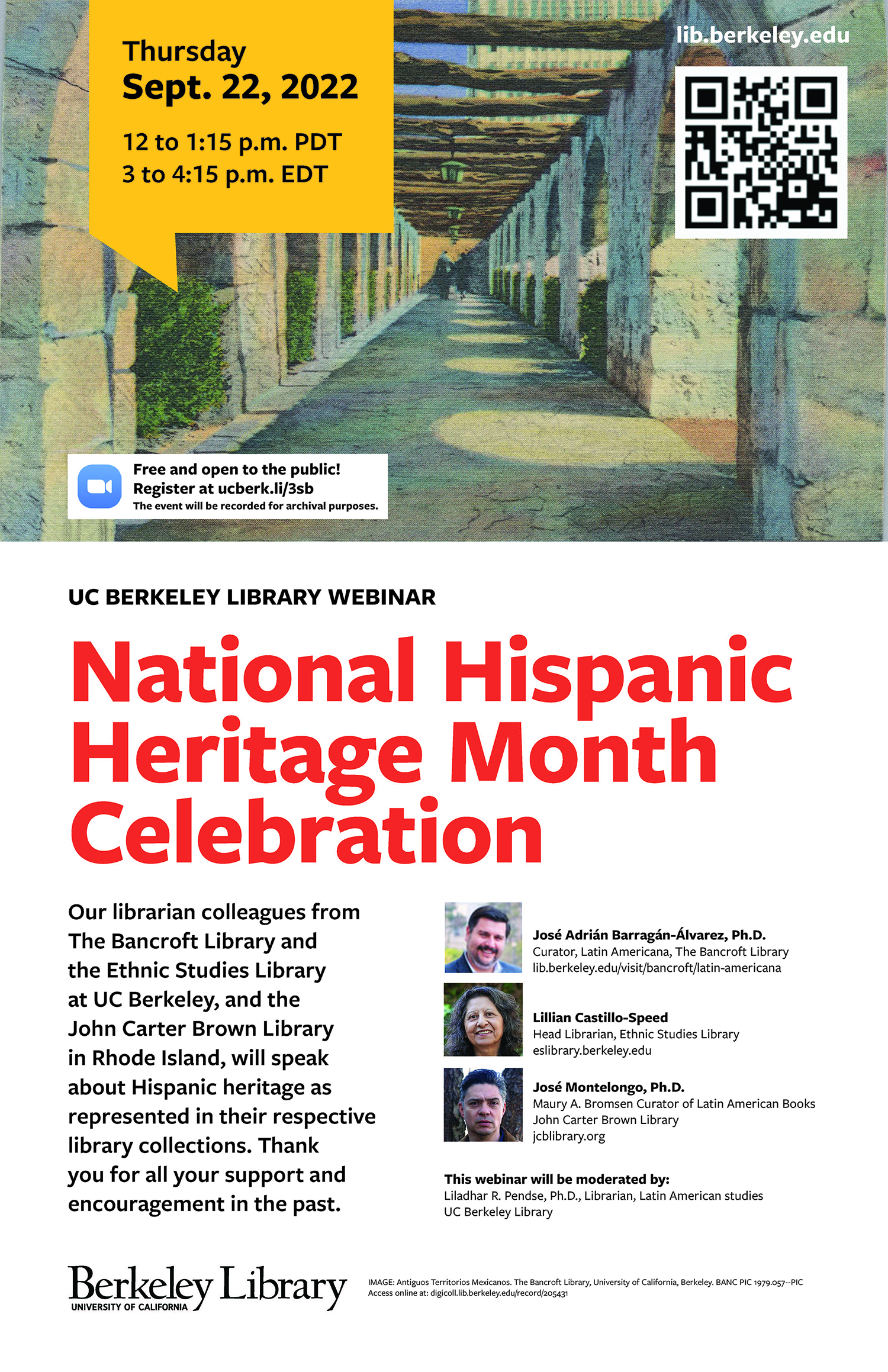
Grito de Dolores, Aniversario de la Independencia and Fiestas Patrias
Each year, Mexico marks an anniversary of its independence. One of the revered heroes of Mexico has been Fr. Miguel Hidalgo y Costilla, whose Grito de Dolores has been frequently used as a rallying tool against the perceptions of injustice. UC Berkeley’s Library is rich in print and analog materials on Mexico’s history. Fiestas Patrias is one essential component of the holiday celebration, both here in the United States and Mexico.
Recently, I was surprised to see a box waiting to for me in the office that was mailed to me by the FCE in Mexico as a gift to the library. Below are some scanned images of the books that were in that box. Not all the books below deal with the Independence of Mexico, however these represent cultural and informational objects that inform their readers of Mexico’s rich yet complicated history and literature.
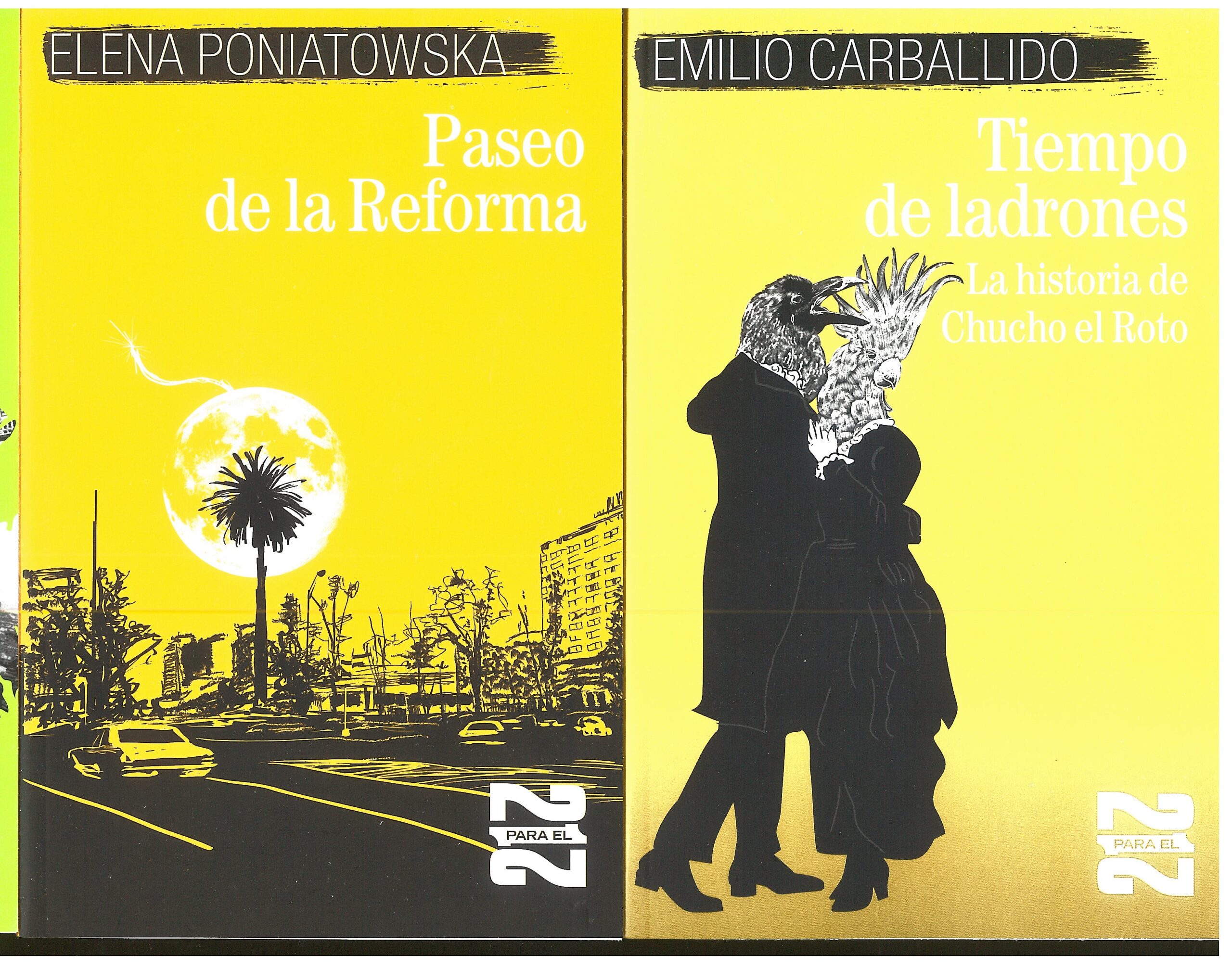
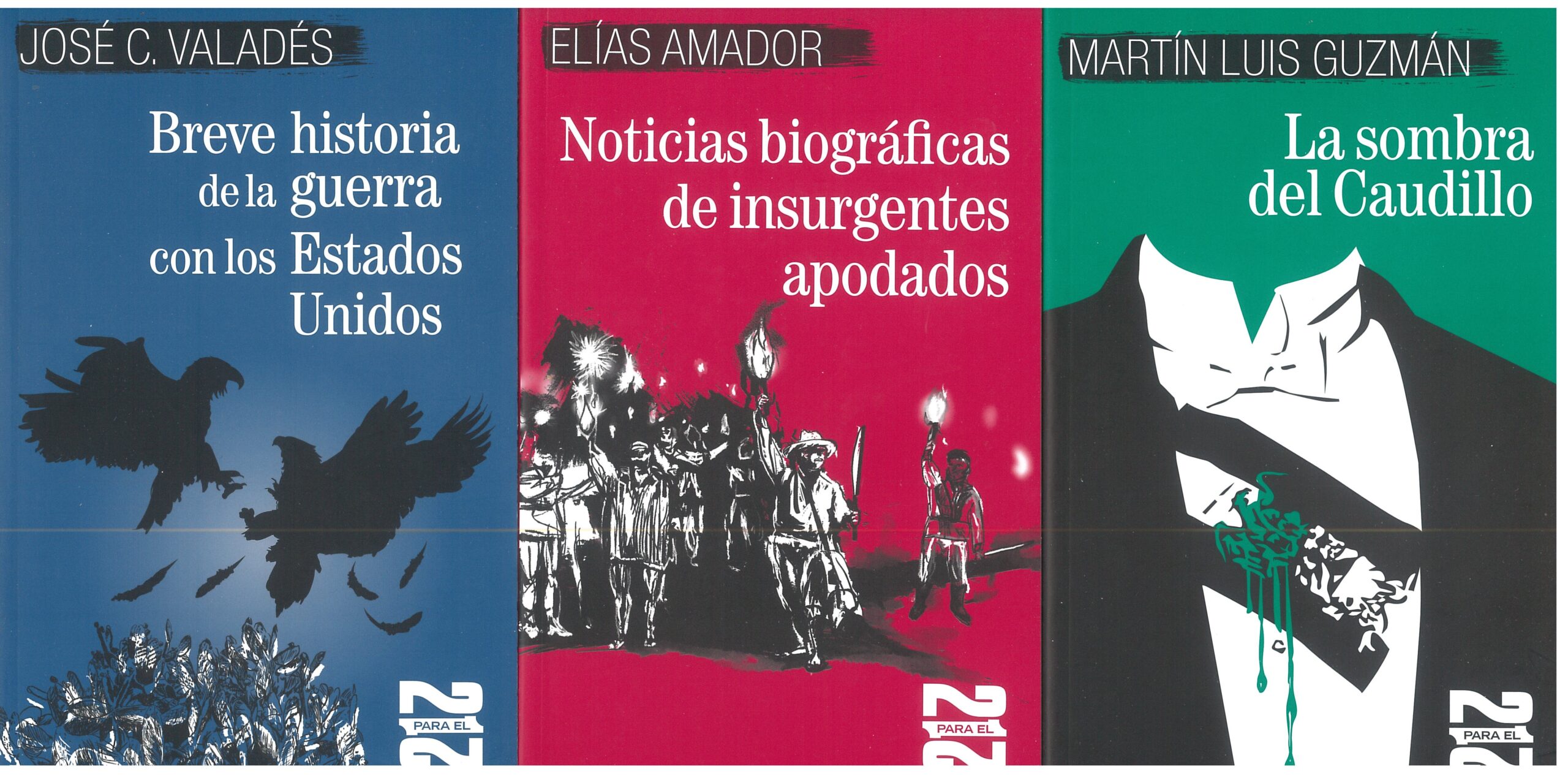
I leave you with a recent video of one of Mexico’s prolific writers and historian, Paco Ignacio Taibo II. We do have many books that deal with the subject of El Cura Hidalgo.
Besides this video, the resilience of el pueblo to survive through odds is something that inspires me to serve our students and faculty from diverse backgrounds as a librarian at a public academic library of University of California.
Economic Survey of Latin America and the Caribbean 2022: Trends and challenges of investing for a sustainable and inclusive recovery
The United Nation’s ECLAC has published a 2022 report on trends and challenges of investing for a sustainable recovery in Latin America and the Caribbean. Below is the self-description, “The 2022 edition of the Economic Survey of Latin America and the Caribbean consists of three parts. Part I outlines the region’s economic performance in 2021, analyses trends in the early months of 2022, and the outlook for growth for the year. It examines the external and domestic factors that have influenced the region’s economic performance in 2021, trends for 2022, and how these factors will affect economic growth in the coming years.
Part II of this edition presents some region’s main challenges in investing for sustainable and inclusive economic growth. It analyses the trends in total investment over the last 70 years and highlights the profound change brought about by the 1980s debt crisis, with a slowdown in investment from the 1990s onwards.
Part III of this publication may be accessed on the Economic Commission for Latin America and the Caribbean (www.eclac.org). It contains the notes relating to the economic performance of Latin America and the Caribbean countries in 2021 and the first half of 2022, together with their respective statistical annexes. The date for updating this publication’s statistical information was 15 July 2022.”
Please click on the image to access this Open Access publication.
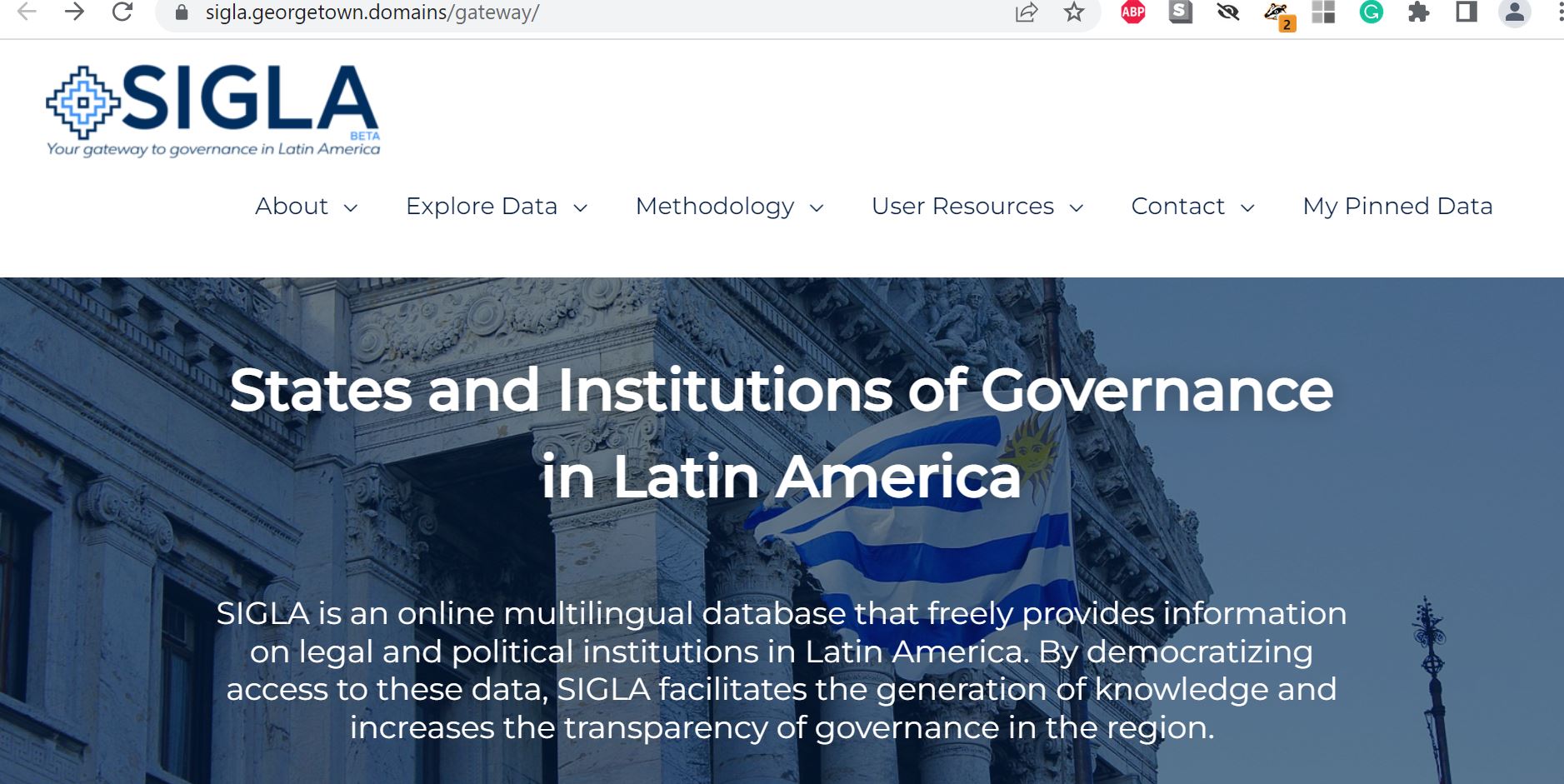
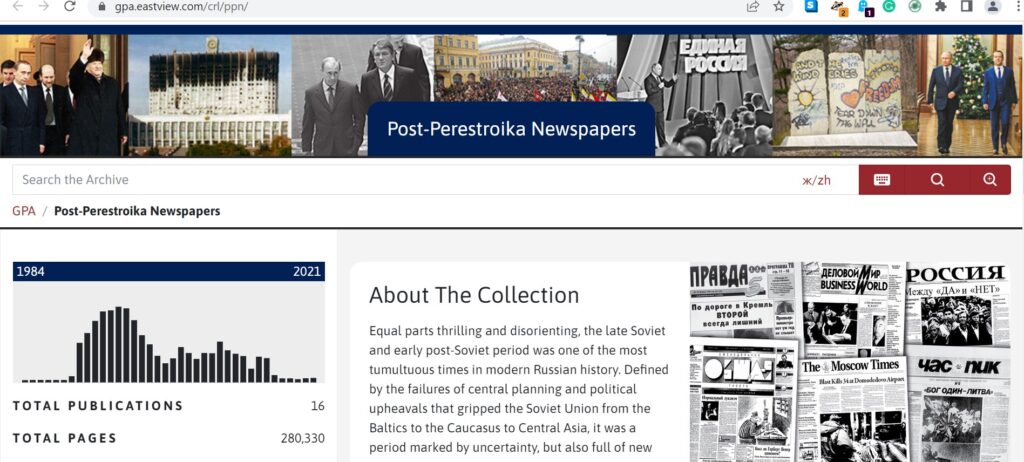
![Creole: Portraits of France’s Foreign Relations During the Long Nineteenth Century [book cover]](https://update.lib.berkeley.edu/wp-content/uploads/2023/01/CREOLE.jpg)
